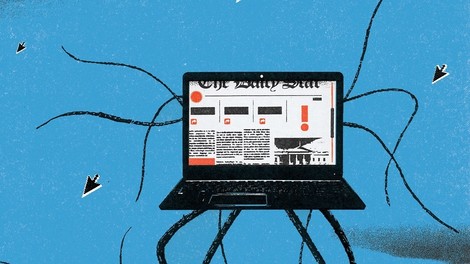Your podcast discovery platform
Curious minds select the most fascinating podcasts from around the world. Discover hand-piqd audio recommendations on your favorite topics.

piqer for: Globalization and politics Global finds
I am an Australian freelance journalist focussing on conflicts, politics, and warzones around the world. I have been working as a journalist for over 5 years, having reported from Australia, Germany, China, Egypt, Palestine, and Ukraine. I am especially interested in the way that new technologies are being used in conflict zones in unexpected and often disturbing ways. During my time working as a journalist, I also co-founded open-source war reporting site Conflict News.
The Fake-News Fallacy
With every advance in communications technology comes a change in the way society views itself, and how it controls itself. From the telegraph to the telephone, radio, TV, email and the internet, each new medium disrupts the channels of communication between the powerful and the powerless.
The most recent iteration of this process has been social media, and the disruptive effect this is having on the world. Taking a Western-centric view, this disruption cumulated in the election of Donald Trump to the US Presidency, propelled by a campaign of disinformation and polarisation across a wide range of social media platforms.
Given the seemingly detrimental effects that social media is having on society's ability to communicate effectively, the question needs to be asked: Is social media actually an advance in communication, or is it a misstep?
Adrian Chen's lengthy article for The New Yorker looks at this very question. Comparing the current societal panic towards social media to a similar panic that existed in the 1930s due to radio, he draws a number of distinct similarities. If radio could make thousands believe aliens had invaded, what else could it do under more nefarious hands?
As apt as this comparison is, however, social media is shown to be powerful in a way that even radio in its heyday could not hope to achieve. Our lives, our political views, and even our emotions are shaped by algorithms controlled by major platforms like Facebook, Google and Twitter. Curiously, though, these platforms seem reluctant to exploit this power — which leaves a concerning thought for the future: What if events like the Arab Spring and the election of Trump are only the start of the disruption?
